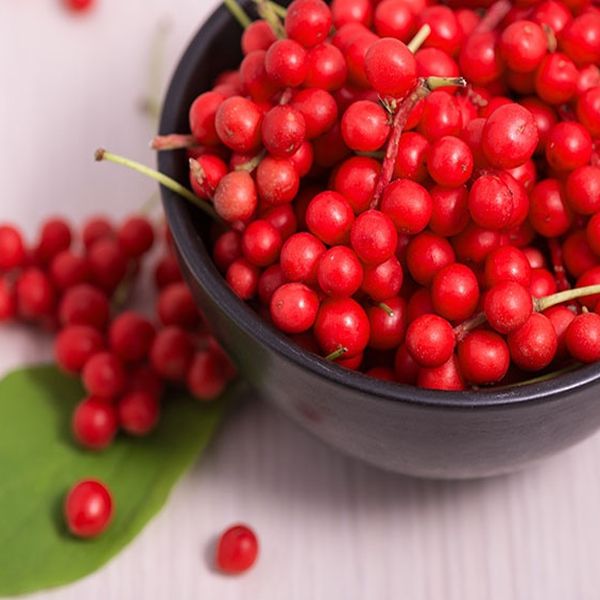Schisandra chinensis (five flavor fruit) is a fruit-bearing vine. It’s purple-red berries are described as having five tastes: sweet, salty, bitter, pungent, and sour. The seeds of the Schisandra berry contain lignansTrusted Source. These are substances which may have beneficial effects on health.
Schisandra isn’t typically used as a food. But it has been used for medicinal purposes throughout Asia and Russia for generations.
In traditional Chinese medicine, Schisandra is considered beneficial to qi, the life force or energy inherent in all living things. It’s thought to have a positive impact on several meridians, or pathways, in the body, including the heart, lungs, and kidneys.
A 2017 studyTrusted Source found that Schisandrin B had a beneficial, positive effect on Alzheimer’s disease. Researchers determined that this was caused by Schisandrin B’s ability to block formation of excess amyloid beta peptides in the brain. These peptides are one of the components responsible for forming amyloid plaque, a substance found in the brains of people with Alzheimer’s disease.
Another study indicates that Schisandrin B may be effective against both Alzheimer’s and Parkinson’s disease. This is due to its anti-inflammatory, neuroprotective effect upon microglial cells in the brain.
A 2013 animal studyTrusted Source found that pollen extracted from the Schisandra plant had a strong, antioxidant effect against toxic damage that was induced in the livers of mice. Schisandrin C was effective against liver damage in people with both acute and chronic hepatitis, a liver disease.
Another big draw to Schisandra is its ability to protect and support the body during times of stress, whether it is mental or physical. Schisandra is considered an adaptogen, meaning, it helps the body adapt to stress.
Fortunately, Schisandra helps to control the release of hormones and helps the body adapt to stress. When your body is better able to cope with stress, you are less likely to suffer from illness and mental fatigue.
It’s important not to exceed the recommended dosage of Schisandra provided to you by your healthcare practitioner, or as it appears on its label.
Doses that are too high can result in gastric distress symptoms, such as heartburn. For this reason, Schisandra may not be appropriate for people with conditions such as ulcers, gastroesophageal reflux (GERD), or hyperchlorhydria (high stomach acid). Schisandra may also cause a reduced appetite.
Post time: May-15-2020
